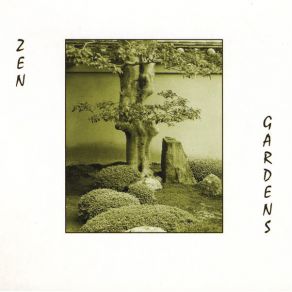Zen Gardens
Download links and information about Zen Gardens by Wall Matthews. This album was released in 2003 and it belongs to Ambient, New Age, Electronica, Songwriter/Lyricist genres. It contains 11 tracks with total duration of 01:06:04 minutes.

|
|
|---|---|
| Artist: | Wall Matthews |
| Release date: | 2003 |
| Genre: | Ambient, New Age, Electronica, Songwriter/Lyricist |
| Tracks: | 11 |
| Duration: | 01:06:04 |
| Buy it NOW at: | |
| Buy on iTunes $9.99 | |
Tracks
[Edit]| No. | Title | Length |
|---|---|---|
| 1. | Enryaku-Ji | 4:50 |
| 2. | Ryoan-Ji | 6:02 |
| 3. | Tofuku-Ji | 8:12 |
| 4. | Saiho-Ji | 10:56 |
| 5. | Nanzen-Ji | 4:58 |
| 6. | Kiyomizu-Dera (The Clear Water Temple) | 3:48 |
| 7. | Tofuki-Ji (Small Moss Garden) | 2:16 |
| 8. | Hakusha-Sonso (The Inn of White Sand) | 6:45 |
| 9. | Myoshin-Ji | 6:26 |
| 10. | Kiyomizu-Dera (Early Morning) | 6:03 |
| 11. | The Philosophers Path (In Memory of John Cage) | 5:48 |
Details
[Edit]For centuries, it was practically unheard of for non-Asian musicians to play the shakuhachi and other traditional Japanese instruments. But technology really does have a way of making the world smaller, which is why Japanese teenagers are growing up listening to alternative rock and hip-hop and why American musicians are playing the shakuhachi, studying Zen Buddhism, cooking miso soup, and drinking imported plum wines that say "Made in Tokyo" on the label. Although there are some examples of American musicians playing traditional Japanese music — Ralph Samuelson's Offerings, for example — Wall Matthews' Zen Gardens doesn't fall into that category. However, this 2003 release is a pleasing example of ambient electronica (some might say new age) with a strong Japanese influence. Baltimore native Matthews describes Zen Gardens as "music inspired by the temples and gardens of Kyoto," and his compositions have the sort of tranquillity one would expect from that setting. Like a lot of traditional Japanese shakuhachi and koto music, Matthews' electronica is as haunting as it is calm and peaceful — peaceful enough to appeal to new age audiences, although whether Zen Gardens is ambient or new age depends on one's point of view. In some cases, the two can easily overlap. Electronica, it should be noted, isn't necessarily 100 percent electronic — it can offer a blend of synthesizer programming and acoustic instruments, which is the approach that Matthews goes for on Zen Gardens. This is definitely a high-tech CD, but for Matthews, high-tech doesn't mean excluding the shakuhachi, bells, wind chimes, and other instruments one associates with traditional Japanese music. Although not performed with Japanese purists in mind, Zen Gardens will easily appeal to those who are open to the idea of experimental ambient/Asian hybrids.